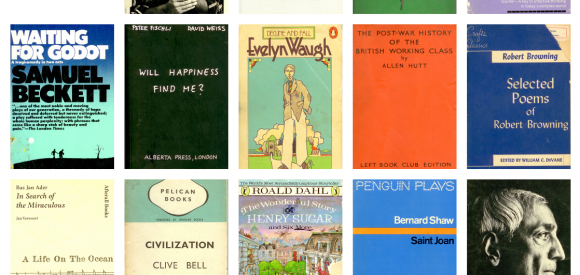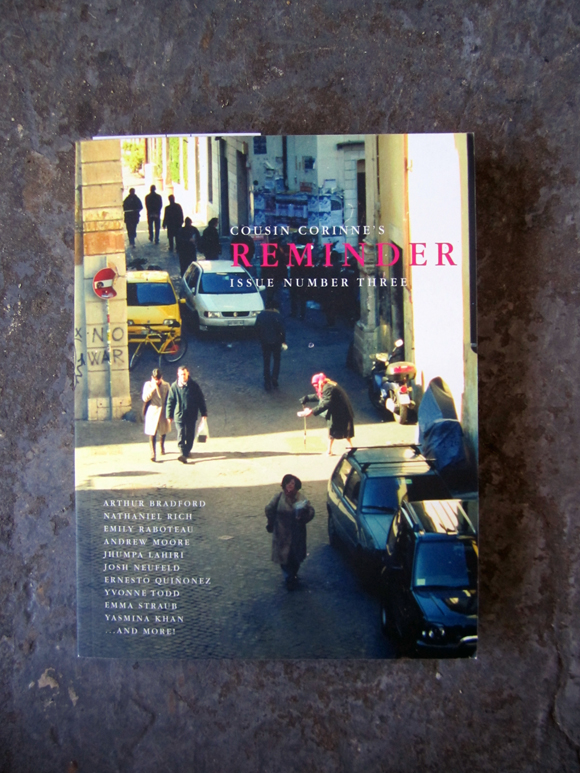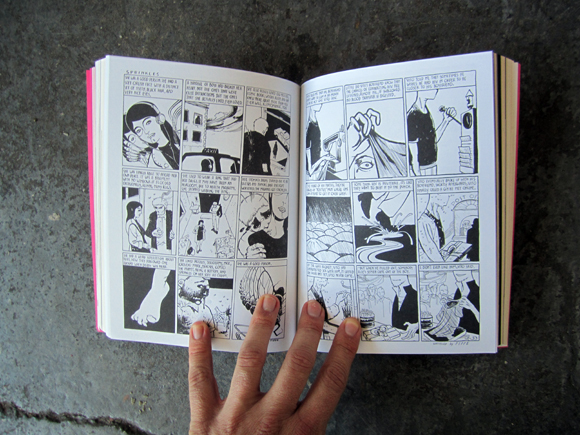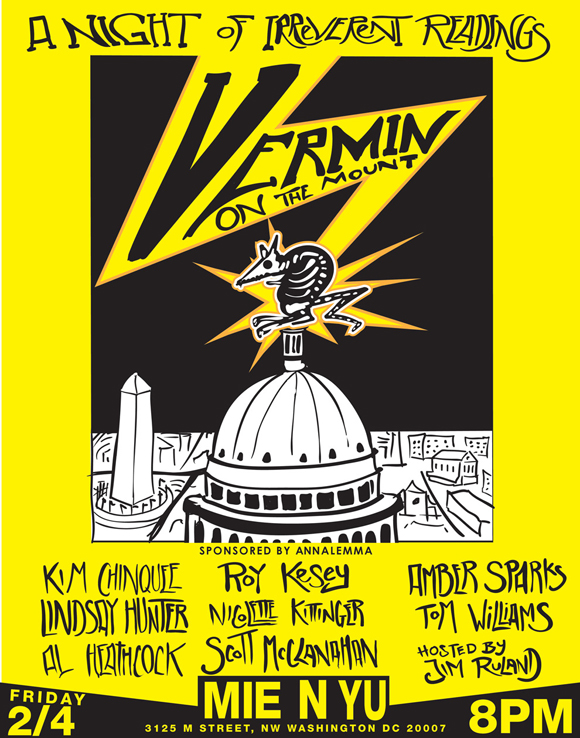
Donald by Eric Martin and Stephen Elliott
(McSweeney’s, 2011)
What if Donald Rumsfeld got caught up in the state-sanctioned torture machine he helped design? That’s the premise of Eric Martin and Stephen Elliott’s short novel Donald. The main character is abducted in the middle of the night by a clandestine military group who take him to an undisclosed location where they begin a series of esotheric interrogations. It’s unclear what they want, and before the main character can even discern if he can give it to him, he’s taken to a Guantanimo-like facility where he becomes a prisoner of war he helped create. Events soon blur together, interrogation sessions become more clouded in mystery and alliances with guards and prisoners are formed quickly and dissolved just as fast.
Martin and Elliott have done an impressive thing considering the audience they’re catering to, considering the goal they’re trying to achieve. They’ve made the character of Donald into a person you sympathize with, a person you feel for and relate to and root for even though you don’t agree with his actions, his rationale, or his worldview. It would have been easy to take Donald at face value, to play up the caricature, to feed into the liberal desire to burn him at the stake. Of course, the premise of the book is hurling Donald into the downward spiral of confusing madness that is the military torture machine. The book borders on tedious as the interrogations become maddeningly repetitive and unproductive, but that comes with the territory when you’re trying to mimic the feeling of psychological torture.
People often question the importance of fiction. What’s its role? Is it relevant? What’s the point? Novels like this, ones that make clear, unflinching, political statements (ones that have the balls to come out on the same day as Rumsfeld’s true memoir) seem to be the answer to that question.

Another Bullshit Night in Suck City by Nick Flynn
(Norton, 2004)
This was the one that was everywhere when it came out. The one that was on all the book club lists, the one everyone was reading, even if they didn’t read all that much, even the people who only read three or four books a year, this was the one. I missed it. I missed it cause I was snobbish when this book came out. I was arrogant enough to think that I knew something that everyone else didn’t because I wasn’t going to get sucked into the hype train. What a dumbfuck mode to be in. What a willfully ignorant, up-my-own-ass-for-no-good-reason mode to be in. What mistake to miss out on a book like this because I’m stuck in this mode of thinking that I’m somehow better than someone else. What a waste of time it is to think like this. Think about how much this book could have taught you with its tight and powerful vignettes adding up to a monumental story. Think about all the time you wasted thinking you were hot shit when you were so much the opposite.
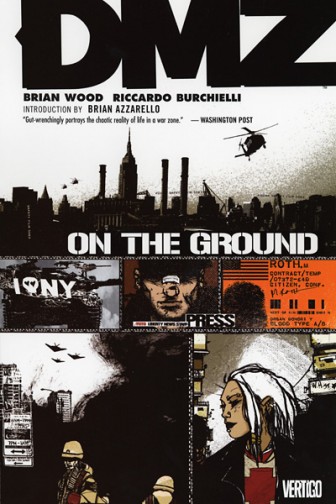
DMZ Vol.1: On the Ground by Brian Wood and Riccardo Burchielli
(Vertigo, 2006)
In the not-too-distant future, anti-social militias that pepper the country (once thought of as bastions of crazy inbred woods folk) awake like a sleeping giant and topple the US government. The borough of Manhattan becomes a Demilitarized Zone, where chaos reigns and no one has any concept of what life is like, where rumors end and fact begins. Inexperienced photojournalism intern Matty Ross is thrown headlong into answering these questions as his team is attacked when they land in the warzone and he’s left alone without a contact inside to pick up the pieces.
The macho, bar-stool voice bravado that seems to pervade most male comic book characters personalities isn’t skimped on in this series. The most interesting thing about DMZ is the story that lies beneath the surface, the story the news is often unable to provide about warzones: the story of what life is like for the individual. If post-apocalyptic genre stories should be judged not on the questions of why the word as we know it has come to an end, but what life is like for people after the fact and how communities attempt to rebuild themselves, then DMZ is worth a read in this regard.













